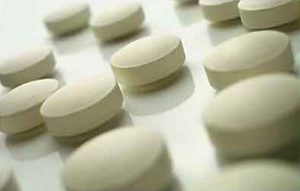 Randomized trials demonstrate no benefit from antibiotic treatment exceeding the shortest effective duration.
Randomized trials demonstrate no benefit from antibiotic treatment exceeding the shortest effective duration.
A a retrospective cohort study has been designed to examine predictors and outcomes associated with excess duration of antibiotic treatment.
The study involved 43 hospitals of the Michigan Hospital Medicine Safety Consortium and 6481 general care medical patients with pneumonia.
The primary outcome was the rate of excess antibiotic treatment duration (excess days per 30-day period).
Excess days were calculated by subtracting each patient’s shortest effective (expected) treatment duration (based on time to clinical stability, pathogen, and pneumonia classification [community-acquired vs. health care–associated]) from the actual duration.
Two thirds (67.8% [4391 of 6481]) of patients received excess antibiotic therapy. Antibiotics prescribed at discharge accounted for 93.2% of excess duration.
Excess treatment was not associated with lower rates of any adverse outcomes, including death, readmission, emergency department visit, or Clostridioides difficile infection.
Each excess day of treatment was associated with a 5% increase in the odds of antibiotic-associated adverse events reported by patients after discharge.
For more information
Annals of Internal Medicine
Excess Antibiotic Treatment Duration and Adverse Events in Patients Hospitalized With Pneumonia: A Multihospital Cohort Study
Link…
University of Michigan Medical School and VA Ann Arbor Health System
Link…
MDN
This post is also available in:
 Italian
Italian


